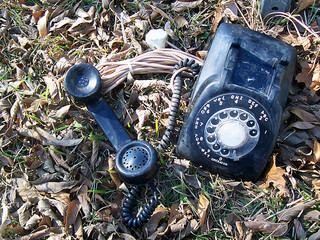I could have written the standard post that have been written over and over by countless experts.
I could have recycled older content or found inspiration from some of the many crises brands bring on themselves, such as what General Motors just experienced.
I could have written about reputation management or how social media has changed PR.
But that is not how I roll. I am an industry heretic.
It doesn’t bring me accolades. It doesn’t bring me clients who run like lemmings all off the same cliff. But I don’t care; I speak the truth. I love using real world observations to confirm or debunk fabulous claims made by my peers.
Crisis Prevention Should Start Offline
The fact is, online conversations are still a very, very small percent of our daily communication.
What is said in private offline (in person, email, SMS text, phone, even private social apps) will always be far more damaging than anything that could occur online to your brand.
If you look at some of the biggest PR blow ups in history, such as the BP oil spill, nothing being said online by people was as damaging as the event itself, and the offline talk about BP.
Once something goes online as a topic of discussion, especially a negative discussion, you have lost control. You’ve lost control of your message, and possibly your brand, to the masses – customers and non-customers alike.
Online is where the talk happens after the blunder.
Online is where you get exposed for who you are when you aren’t truthful, or are too truthful about not so savory views.
Online is where your product, service, or brand will be tried in the court of public opinion.
But offline is where you get punished.
Offline is where the real jury and time served is decided.
Offline is where sales evaporate.
PR Crisis Plans
Our friend Gini Dietrich wrote a great book in which she included one of her mantras – have a PR crisis plan for your business. But there are very few purely digital blunders (like the infamous Chrysler Tweet).
Even when there is a social media blow-up, the underlying cause is usually fueled by something that occurred offline, like in the HMV case.
While Gini will advise clients on how to prevent a rogue employee from grabbing the company social media feeds, you can’t shut up the employees.
The same blow up will still happen, it just might not happen on your official Twitter feed.
If you read Gini’s posts, you’ll begin to understand how honest and transparent she is with her staff and her community. I’m sure she would agree that HMV wasn’t honest or transparent, and even when hard decisions have to be made, they went about it all wrong.
So, the truest form of digital crisis planning is preventing offline crises in the first place. Purely digital mistakes like what happened to Chrysler dissipate quickly. But ones that happen offline are in your control.
Are You in Charge of Your Brand?
- You control the quality of your product or service.
- You control the customer service and whether real life points of contact are valued and paid well.
- You control the quality, training, and pay of your staff.
- You control whether you skimp on safety like BP did.
- You control whether you come clean offline like GM didn’t with their recent recall.
- You control whether you are active in your community or just view community as a source of income.
Some of my marketing and advertising peers get upset when I tell people that if they focus on the product, the service, and the right price, most advertising (and certainly social media) isn’t needed to have a successful business.
If you take control of your brand, you take control of your public image and therefore minimize the opportunities for a digital PR crisis to occur. The power of real-life offline interpersonal communication will build goodwill and drive your business.
But you won’t. You will deal with a blow up because you chose to save money with poor service or shoddy products, hoping you won’t have to be honest or pay your employees what they deserve. Or you might choose to be politically polarizing or find your leaders getting caught being insensitive or unethical.
Just remember, you reap what you sow. Think about it.
photo credit: lilywarrior via photopin cc
